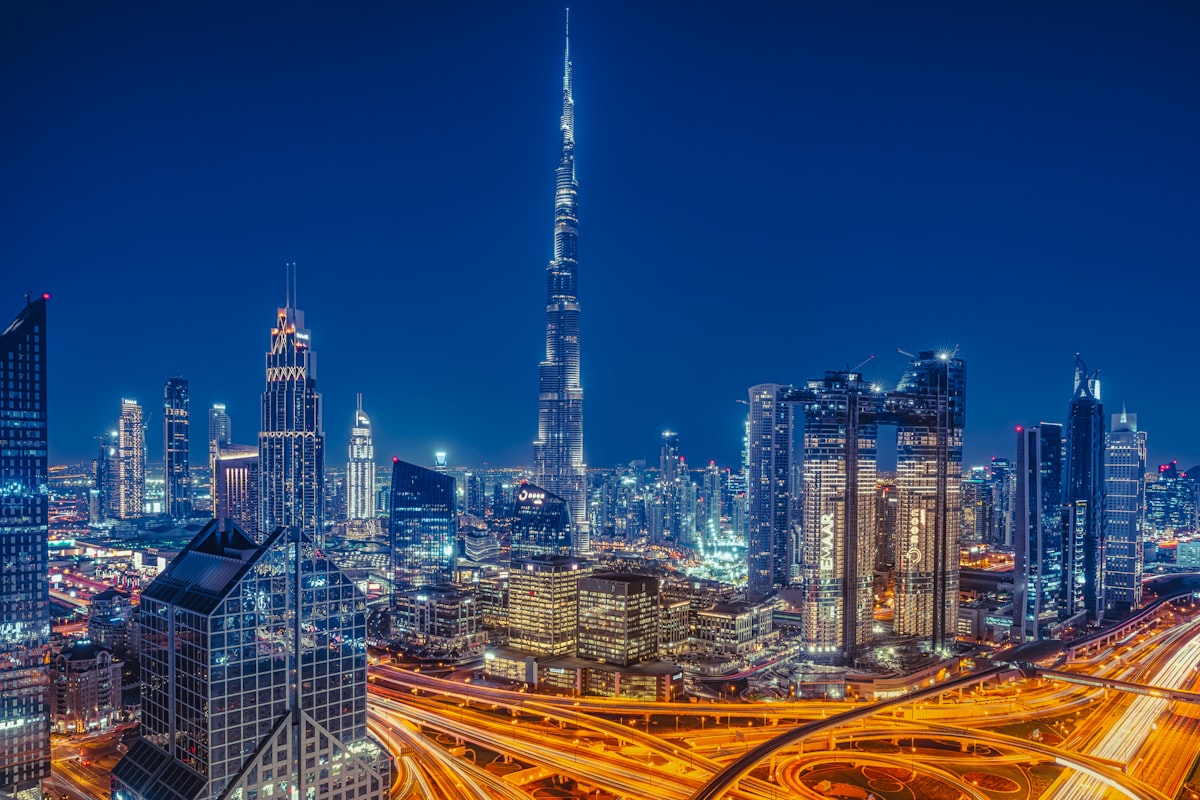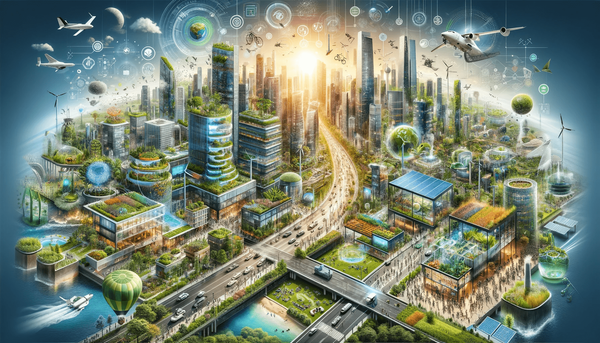Green Logistics in BRICS & Gulf: Sustainable Future Insights
Exploring the intersection of economic growth and environmental sustainability, this study unveils the critical role of green logistics in BRICS and Gulf countries.

The attached research paper, titled "Environmental Sustainability and Green Logistics: Evidence from BRICS and Gulf Countries," investigates the influence of economic growth, green innovation, foreign direct investment, transport emissions, renewable energy, and trade openness on green logistics in both BRICS (Brazil, Russia, India, China, and South Africa) and Gulf countries from 1992 to 2020[1].
Green Logistics and Its Importance
Green logistics (GRL) refers to a set of eco-friendly practices adopted by logistics companies to minimize their ecological footprint and promote sustainability in the industry. The logistics sector is crucial in supporting various aspects of the economy, making it an essential part of a nation's development. However, this sector also contributes to environmental pollution through multiple emissions. Adopting environmentally friendly logistics practices presents a promising solution to mitigate adverse environmental impacts[1].
Key Findings
The research paper reveals that the logistics industry in BRICS and Gulf countries is currently in its early stages of development, primarily emphasizing operational efficiency over environmental concerns. To promote the adoption of environmentally sustainable logistics practices in these regions, creating a coordinated framework that addresses the logistics sector, energy consumption, and CO2 emissions is crucial. This approach will facilitate the growth of eco-friendly logistics initiatives[1].
The study also found that green innovation (GRI) presents a solution to reduce CO2 emissions by minimizing reliance on fossil fuels, representing a pivotal strategy for achieving a sustainable and environmentally friendly ecosystem. Embracing GRI can result in a substantial reduction in societal costs associated with pollution[1].
Challenges and Recommendations
Despite the potential benefits of green logistics, its implementation has several challenges. The logistics industry in BRICS and Gulf countries primarily focuses on operational efficiency rather than environmental concerns. To overcome this, it is crucial to create a coordinated framework that addresses the logistics sector, energy consumption, and CO2 emissions[1].
The study recommends that policymakers prioritize the development of regulations and incentives that encourage environmentally friendly logistics practices. This may involve introducing emission reduction targets, offering tax incentives for companies adopting green logistics technologies, and implementing standards for energy-efficient transportation modes. Additionally, collaboration between government, industry stakeholders, and academic institutions is essential for sharing knowledge, researching, and implementing best practices in sustainable logistics[1].
Conclusion
The research paper provides valuable insights into the role of green logistics in promoting environmental sustainability in BRICS and Gulf countries. It highlights the importance of green innovation and the need for a coordinated approach to address the challenges associated with the logistics sector, energy consumption, and CO2 emissions. The findings of this study can guide policymakers, industry stakeholders, and academic institutions in their efforts to promote environmentally sustainable logistics practices[1].
Citations:
[1]
researchingEnvironmentalsustainabilityandgreenlogisticsEvidencefromBRICSandGulf.pdf
[2] https://www.linkedin.com/pulse/importance-logistics-global-economy-sandeep-chandel
[3] https://www.linkedin.com/pulse/how-logistics-industry-impacts-environment-what-big-companies
[4] https://www.upperinc.com/blog/green-logistics/
[5] https://onlinelibrary.wiley.com/doi/10.1002/sd.2856
[6] https://blogs.worldbank.org/trade/boosting-trade-and-economic-development-through-better-logistics
[7] https://applandeo.com/blog/the-environmental-impact-of-logistics-and-how-to-reduce-it/
[8] https://www.sap.com/insights/green-logistics.html
[9] https://www.sciencedirect.com/science/article/pii/S1674987123002086
[10] https://www.linkedin.com/pulse/importance-transportation-logistics-global-economy-ankit-kumar
[11] https://qiktruck.co.za/blog/the-devastating-environmental-impact-of-logistics.html
[12] https://www.bringg.com/blog/logistics/green-logistics/
[13] https://www.masterslogistical.co.uk/logistics-important-todays-economy
[14] https://www.iso.org/contents/news/2023/01/a-net-zero-logistics-sector.html
[15] https://www.dhl.com/discover/en-global/logistics-advice/sustainability-and-green-logistics/dhl-green-logistics-toolkit
[16] https://jeena.com/blog-read.php?slug=role-of-logistics-companies-in-the-growth-of-the-indian-economy
[17] https://www.open.edu/openlearn/money-business/leadership-management/supply-chain-sustainability/content-section-2.1
[18] https://www.inboundlogistics.com/articles/green-logistics/
[19] https://ideas.repec.org/a/ejn/ejssjr/v5y2017i1p11-23.html
[20] https://www.saloodo.com/blog/the-road-to-sustainability-environmental-impact-logistics/
[21] https://www.maersk.com/logistics-explained/sustainability/2023/08/27/sustainable-logistics-best-practices-and-benefits
[22] https://www.sciencedirect.com/science/article/pii/S2352146521003860
[23] https://www.epa.gov/smartway/why-freight-matters-supply-chain-sustainability
[24] https://www.supplychaindive.com/spons/sustainability-and-green-logistics-reshaping-the-supply-chain/651955/
[25] https://www.oecd.org/environment/envtrade/2386636.pdf




